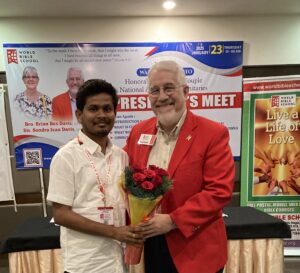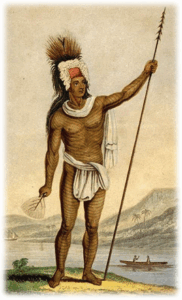
Postal
Postal is method of teaching the Master Series, WBS core curriculum, to Students seeking to know Jesus by mail.

Postal is method of teaching the Master Series, WBS core curriculum, to Students seeking to know Jesus by mail.


Mathetis is a platform for studying interactive Bible courses together in groups online.

Ocean Bridge enhances correspondence between Study Helpers and international Students studying the printed Master Series by utilizing digital scanning technology.





By Tim Yaeger, WBS Digital Consultant As I look back on all that was accomplished

The road brought me and Sondra back home to the Austin, Texas area this month

As I am preparing for my next trip, I am struck by one of the

By Tim Yaeger, WBS Digital Consultant In the U.S., we celebrated Thanksgiving in November as

Postal is method of teaching the Master Series, WBS core curriculum, to Students seeking to know Jesus by mail.


Mathetis is a platform for studying interactive Bible courses together in groups online.

Ocean Bridge enhances correspondence between Study Helpers and international Students studying the printed Master Series by utilizing digital scanning technology.





By Tim Yaeger, WBS Digital Consultant As I look back on all that was accomplished

The road brought me and Sondra back home to the Austin, Texas area this month

As I am preparing for my next trip, I am struck by one of the

By Tim Yaeger, WBS Digital Consultant In the U.S., we celebrated Thanksgiving in November as

In the year 1800 A.D., an outrigger canoe from Rai’atea, near Tahiti, was caught in a storm, pushed off course, and then after drifting 750 miles west, landed on the northern shore of Rarotonga. The fishermen were greeted by the ariki (chief) Makea Tinirau and the people of the Te-au-o-Tonga tribe. They told the local people of tremendous changes that had come to their land in the former two years because of the arrival of the “kooke”. The fishermen also said that the people from “Beritini” (Britain ) had brought a new god – Jehovah, who had a son named Jesus Christ. Many of their people were becoming “Christian.”
Aged Makea Tinirau then asked, “Why would you desert the gods of your fathers to serve Jehovah? What blessing has Jehovah brought to Rai’atea?” The Rai’atean fishermen answered in one word, “Peace!”
As the fishermen left for home, the Rarotongans pondered the significance of the news which they had received. “Peace” was a dream of their entire island. For over a century anarchy and agnosticism had grown rapidly. Feuds, then tragic wars, had become commonplace in a formerly peaceful society.
The Rarotongans wanted the blessings of the “new God,” yet they knew him not, nor how to find him. Makea commanded his people to pray daily that someone would bring Jehovah. He built a marae (temple or holy place) to Jehovah, and named his next grandson “Jesus Christ.” For twenty-three years the people of that island literally prayed for “priests” of Jehovah.
In July, 1823, a teacher from the London Missionary Society arrived. Messengers ran the 21 miles around the island shouting, “Jehovah has come! Jehovah had come!” Within months hundreds of ancestral figures had been burned and almost all of the 8,000 people of Rarotonga were eagerly studying the Bible every day.
Over the world today, people are praying for teachers to come. They do not know who we are, and they know almost nothing about Jesus. But they want and need what Christ can give them. When Papahia, the Polynesian teacher, landed on Rarotonga in 1823 he was considered an answer to their prayers. They did not know him and personally he meant nothing to them. Yet his arrival generated immense excitement. Tradition records that people were running everywhere through the bush, along every path, around the perimeter road shouting the news of “Jehovah’s” arrival.
So today somewhere, there are those who pray for the coming of Jehovah. Will they ever be able to shout, “He has come?”
Excerpt: Gray, Dr. Joe D., Speak a Good Word for Jesus. Nashville: 20th Century Christian, 1980

ACTION! is World Bible School's flagship publication. Read inspiring success stories, tips on how to share the Gospel with others and updates on WBS and its tools!

By Tim Yaeger, WBS Digital Consultant As I look back on all that was accomplished in 2025, I am deeply thankful for each of you. Behind every number below is

The road brought me and Sondra back home to the Austin, Texas area this month as we joined WBS staff, board members, volunteers and friends for a two-day planning session for our next 5-year strategic plan.

As I am preparing for my next trip, I am struck by one of the videos that I use during these presentations.

By Tim Yaeger, WBS Digital Consultant In the U.S., we celebrated Thanksgiving in November as a special time to pause and reflect with grateful hearts. We give thanks to God,
Order the NASB (1995) WBS Study Bible today.